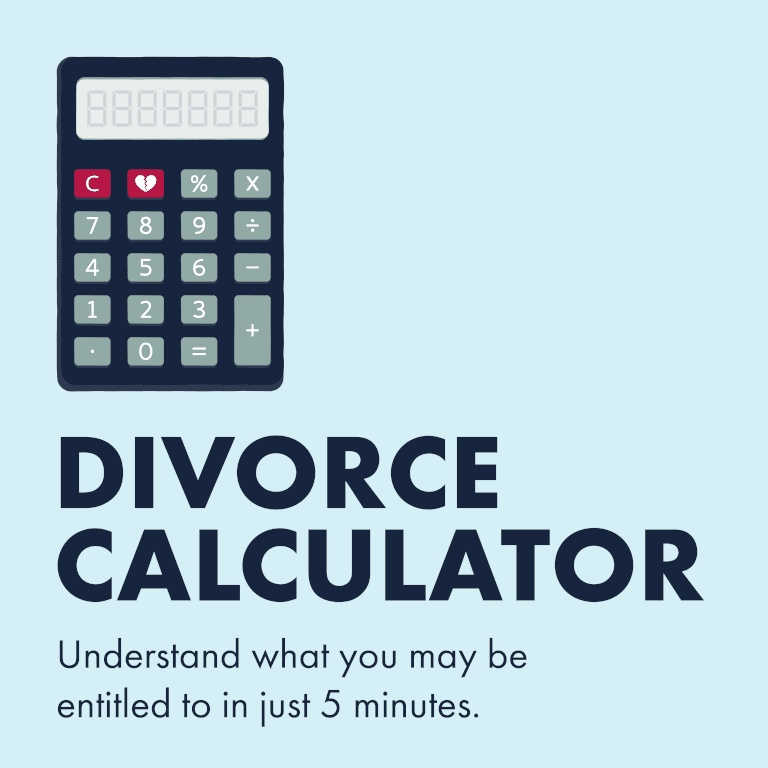Family solicitors, specialising in child arrangements
Agreeing on child arrangements after separation and divorce can be tough. Parents often find this one of the most challenging aspects of separation, and emotions can run high.
Our specialist child law solicitors are here to guide you through the process. We help parents and guardians resolve their issues and set clear guidelines and structures around post-separation arrangements. We make sure that your children’s best interests are at the centre.
Using our extensive knowledge and experience, we support clients in reaching an amicable solution – without a court application. We encourage direct communication between parents as an ideal where possible. Otherwise, we support negotiation between solicitors, or the use of a non-court dispute resolution method (NCDR) such as collaborative law or mediation.
If parents cannot agree on child arrangements or they have safeguarding concerns, and other avenues have been exhausted, we can work with clients to navigate the court process to ensure the best outcome for the children of the family.
Key child law information
-
How do I resolve a child arrangements dispute?
-
Ideally, you and your ex-partner would be able to agree on post-divorce arrangements between yourselves. We understand that this is not always easy, and so family law solicitors are there to negotiate on your behalf if needed, and guide you through non-court dispute resolution methods where appropriate. Court intervention is a last resort if you cannot reach a compromise.
-
What child arrangement decisions might I need to resolve?
-
Every family is different, and you will need to do what is best for your children.The courts believe that wherever possible, children should have contact with both parents and extended family. You will also need to decide on various responsibilities, how and when the children will move between parents and ongoing communication.
-
Do you need a solicitor for a child arrangements order?
-
To apply for a child arrangements order, you will need to fill in form C100, which can be done yourself. However, an expert family lawyer will be able to guide you through the form, and give insight into what information the court will require. They will also explain possible outcomes.
-
How long do child arrangement orders take?
-
Depending on the complexity of your case, court timescales, and the cooperation of both sides throughout the process, getting a child arrangements order granted can take anywhere from 6 months to 2 years.
Our other child law services
 Use the calculator
Use the calculator
What are child arrangements?
Child arrangements is the term used by many people to identify who children live with and spend time with after divorce or separation. This could provide that a child or children live with one parent and spend time with another, or that there is a shared care arrangement. Recent court guidance sets out that a shared care order is not only suitable where the parents have equal division of time, but also where one parent previously had limited time with the children. Having a shared care order ensures that the parents are on equal footing with regards to holidays abroad and schooling. This would also signal the value of each parent in the children’s lives and promote a sense of stability.
read moreMany parents choose to make a flexible arrangement between themselves, but it is best if decisions are documented in a parenting plan. Although these are not legally binding, they can build a solid foundation for parenting after separation to ensure that there is stability and routine for children.
Where parents cannot agree outside of court, the family court can step in to make decisions based on the welfare of the children.
Types of arrangements
- Residence orders: Determining where your child lives
- Contact orders: Arranging time with both parents

What are child arrangements orders?
A child arrangement order is a court order that sets out who is responsible for the care of a child. It is usually used when the parents cannot agree on how to split care of their children.
Child arrangements orders can also contain decisions on the children’s structure, plans for education, even the amount of screen time they are allowed.
Types of arrangements
- lives with both parents – this is either used in circumstances the child spends equal (or close to) time with each parent
- lives with and spends time – explains which parent the child spends the most time with and defines the time the other parent has with the child
What child arrangements will I need to make after divorce or separation?
Child arrangement decisions are unique to your family. A family lawyer can support you in what needs to be sorted out and help you navigate conversations with your ex.
Issues that you may need to resolve can include, but are not limited to:
- Where your children should live, and if there are any moves proposed by either parents (either within England/Wales or internationally)
- How much time the children spend with each parent and when
- Financial arrangements including who is responsible for costs of bringing up the children and how this is fairly divided between you both
- Any requests for changing the children’s names
- Education decisions, for example schools, extra curricular activities etc
Coming to child arrangement decisions after a separation requires a sensitive and informed approach. We expertly navigate the legal complexities, advocating for arrangements that serve your children’s best interest and support the future of your family.
Meet our expert child law solicitors
We offer an award-winning service
Why choose Stowe Family Law?
As the only national law firm fully dedicated to family matters, our expert team offers professional advice so you can make a fully informed decision about your divorce.
We are proud to be rated ‘Excellent’ on Trustpilot. Check out our reviews to see what our previous clients have said about our service.
We feature in The Legal 500 rankings and are fully authorised and regulated by the Solicitors Regulation Authority (SRA).
We keep you informed. Take a look at our support section, which features a range of helpful guides, focusing on important topics including finances and mediation.
Let's ask Legal 500
Managing Partner Liza Gatrell is a stand-out Key Lawyer, noted for her specialisms in both domestic and international surrogacy matters. She is joined by ‘brilliant solicitor’ Team Leader Partner Samantha Armour, her inaugural noting in the directory for Stowe Family Law.Let's ask Ms N D
During my initial contact with Stowe Family Law I experienced an empathetic, understanding, compassionate and positive feedback which put me at ease with my circumstances. This boosted my confidence and composure. At the initial face to face interview I found chatting to the lawyer to be very relaxed and friendly and not stressful at all. During ou… Read morer meeting my lawyer communicated all aspects and terms of my situation in a way I could understand. The meeting was very informative and covered all areas. I was able to ask many questions which were very patiently answered to give me a better understanding and a good overview of my way forward. I am more than happy to recommend Stowe Family Law!Let's ask Mr M
After a very complicated multi jurisdiction divorce that had been running for 3 years I switched to SFL. I had an initial meeting with Jemma Slavin and was filled with confidence in her ability and knowledge immediately. Jemma was extremely thorough in bringing matters to a conclusion using all tools at her disposal. I was kept fully informed as we… Read morell as being asked for my own opinion on each course of action taken along the way. From my own experience I can only say that I would recommend both Jemma and SFL in dealing with anything other than straight forward family law. Finally a huge thank you Jemma for expeditiously bringing matters to a successful conclusion.Let's ask Legal 500
Rachel Roberts and her team were nothing short of excellent in helping me through a difficult time. I was the ‘respondent’ in divorce proceedings. I was faced with a particularly adversarial approach by the ‘petitioner’. Rachel Roberts applied her intellect, experience, attention to detail, and wisdom to my case and was successful in achiev… Read moreing my desired outcome. She achieved this efficiently and with due consideration to costs. I would have no hesitation in recommending Rachel and her team to anyone navigating the divorce process. I am sincerely grateful. Thank you.Let's ask Mrs D
Mark Christie provided me with exceptional support throughout a very difficult divorce. His professionalism and robust attention to detail are second to none. He gave me hard facts alongside solid advice and guidance throughout the whole process. His robust and pragmatic approach was reassuring and I certainly felt Mark shouldered the burden of my … Read moredivorce allowing me to sleep at night knowing I had an excellent solicitor acting for me. I will always be grateful to Mark and would highly recommend him, more so I'm certainly grateful he was in my corner!Let's ask Mr L
Excellent service, diligence and professionalism. Got an overwhelming victory against a malicious case brought against me. Can’t recommend highly enough.Let's ask John
Professional, clear communication and good adviceCommon questions on child arrangement orders
Common questions on child arrangement orders
-
Why you might need a child arrangements order
Child arrangements orders are necessary when parents cannot agree on the child’s living arrangements or how much time they should spend with each parent. They ensure the child’s welfare is prioritised and provide a clear, legally binding framework that both parents must follow.
-
How to apply for a child arrangements order
You need to apply to the family court for a child arrangements order, and the process will likely include several hearings. Once in place, the order is legally binding and will last until the child is 16 or 18, depending on the content of the order
-
What is child contact?
Child contact refers to the time a child spends with the non-resident parent i.e. the parent they do not primarily live with. Contact includes overnight stays and daytime contact. Access is not a term used in family law, as ‘contact’ covers all the necessary information.
-
When would I need a children lawyer?
Speaking to an expert family solicitor who specialises in children matters is advisable, particularly if you and your ex are struggling to agree on certain issues. A child lawyer will support negotiations, including help with mediation if appropriate. They can also guide you through the court process of applying for a child arrangements order if you cannot agree matters.
-
How much does a child arrangements lawyer cost?
Legal costs will vary depending on the complexity of your case, your lawyer’s experience, and whether you need to go to court. Applying for a child arrangements order through the court comes with a court fee.
-
Who will the children live with after a divorce?
Custody is not a term used in England and Wales. Child arrangement decisions are unique to your family. Separating parents are encouraged to come to an agreement together that centres around the best interests of their children. Neither parent is prioritised based on gender when it comes to child arrangements.
-
What happens when unmarried parents separate?
The law does not distinguish between married or unmarried parents regarding child arrangements – the welfare of the children is paramount. However, when it comes to unmarried parents, the mother automatically has parental responsibility. The father will have this too if he is registered on the birth certificate. He can also obtain a parental responsibility agreement, or apply to the court for parental responsibility.
In female same-sex relationships, the birth mother will have automatic parental responsibility, and the other parent may also be named on the birth certificate to obtain parental responsibility. For male same-sex couples, the parents will have needed to get a parental order. This can be complex so it is important to seek expert legal advice from a family lawyer.
Child arrangements after separation are determined much like after divorce. There are claims unmarried parents can make regarding financial provision for children, under the Schedule 1 of the Children Act 1989.
Latest advice
Newsletter Sign Up
Sign up for advice on divorce and relationships from our lawyers, divorce coaches and relationship experts.
Privacy Policy Close newsletter modal
























